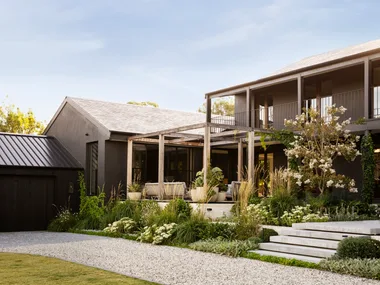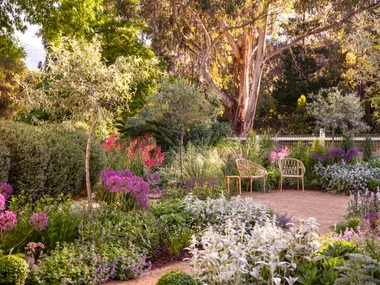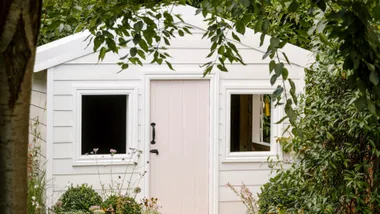The Australian native plants in this inner-city Melbourne garden create the full package of beauty and brains thanks to a dramatic yet considered transformation. When married couple Anthony and Christine bought the property in 2014, the house was a dilapidated bungalow and the yard was completely overgrown. It wasn’t until 2021, when their son Isaac was 10 and their daughter Sophia was eight, that they finally decided to do a knock-down rebuild in order to create their forever family home. With help from Ben Callery Architects and Emmaline Bowman from STEM Landscape Architecture & Design, they set about creating their dream home and garden. Adding lots of Australian native plants that could attract pollinators was at the top of the brief.
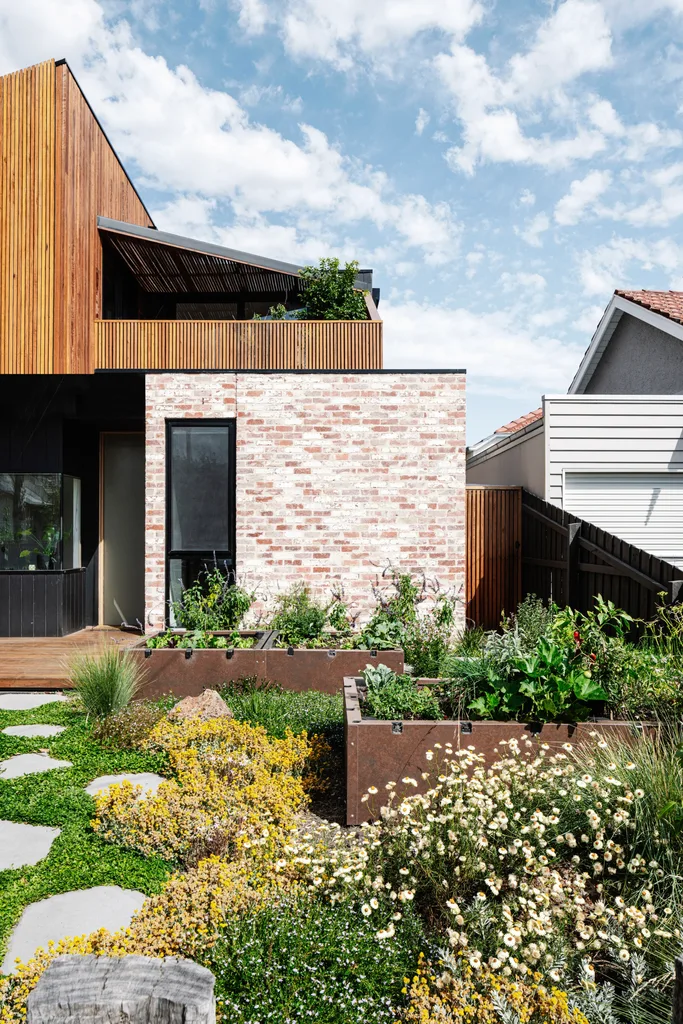
Environmental sustainability
“Sustainability was the number one design principle,” shares Anthony. Christine agrees, adding, “If you’re going to build a new house, I feel like there’s a responsibility to be as sustainable as you can.” While they agreed on that approach, which informed much of the planting palette, they also had their own priorities. For Anthony, creating a productive garden filled with fresh, seasonal produce was key, while Christine really wanted a calming oasis with natural beauty that she could enjoy.
Emmaline found the perfect balance between the two in a layered approach where every element complements the others. The use of Australian native plants led to a hardy, drought-resistant and water-wise garden that also encourages a wide range of pollinators, from bees and butterflies to birds. In turn, these frequent visitors help Anthony’s produce to flourish. It’s a symbiotic relationship, but Emmaline never let beauty fall by the wayside. Function and style are inseparable here.
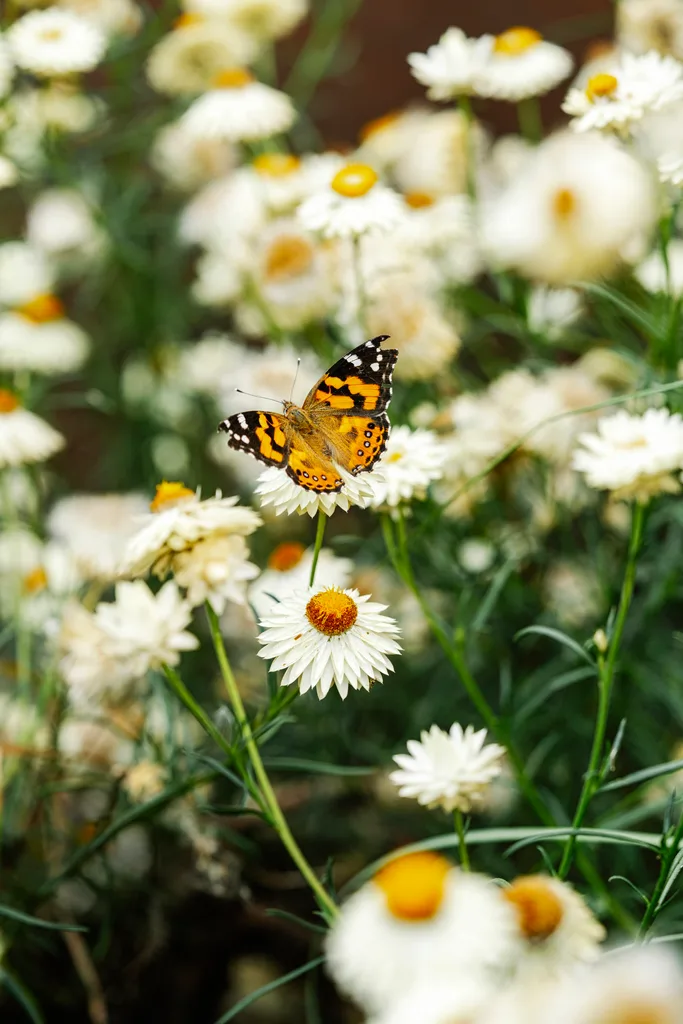
Australian native plants
“There’s a perception that Australian native gardens aren’t as visually interesting, but the flowers and the colour are mindblowing,” shares Anthony. There’s a sense of movement, too, thanks to native grasses and beloved pollinators. This creates what Emmaline dubs “a wild Australian meadow” look that stuns not just the family, but passersby too. “The number of people who take photos is phenomenal,” says Christine, who watches it all from her office window at the front of the house.
Front yard style
“These days, front gardens tend to be a visual piece instead of functional,” explains Emmaline. But with this build enjoying a north-facing orientation, she saw the opportunity to make the most of the bountiful sunshine. “We wanted to make the front this vibrant space where you can see it all working.” Recycled timber sleepers create a subtle boundary while still allowing an almost unobstructed view of the bustling space. The garden was also designed to complement the warmth of the home’s recycled red bricks, blackbutt timber cladding and Weathertex finished in Dulux Colorbond® Night Sky®.
Sawn basalt pavers lead from the street to the front door, with lush groundcover in the form of Dichondra repens weaving between the steps. Emmaline intentionally limited the amount of hardscaping in the garden to evoke a sense of wild wonder. Upstairs on the balcony, Syzygium peeks out above the blackbutt timber cladding. Christine’s home office is situated beside the entrance, with gum vine growing in front for privacy.
Emmaline’s favourite Australian native plants
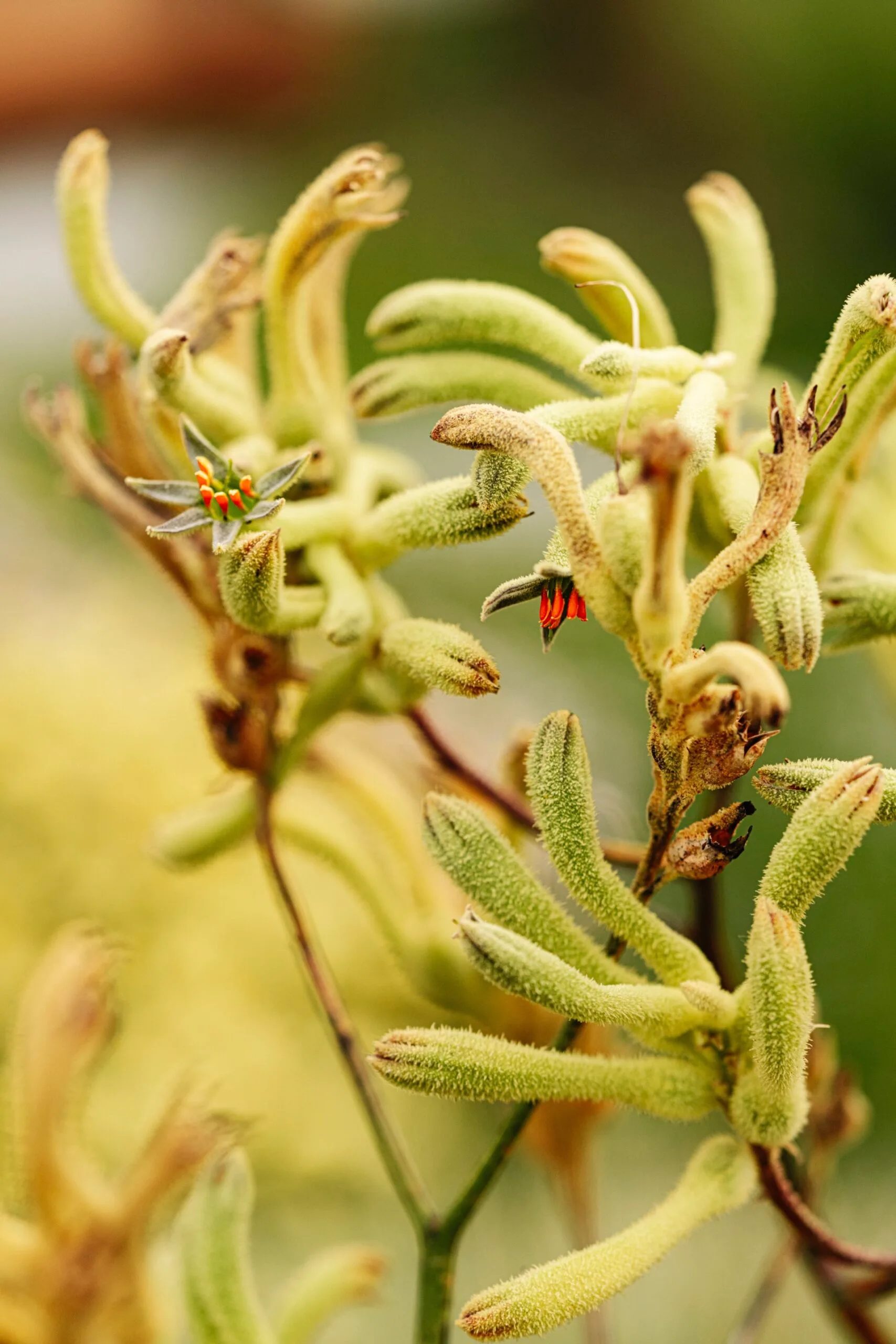
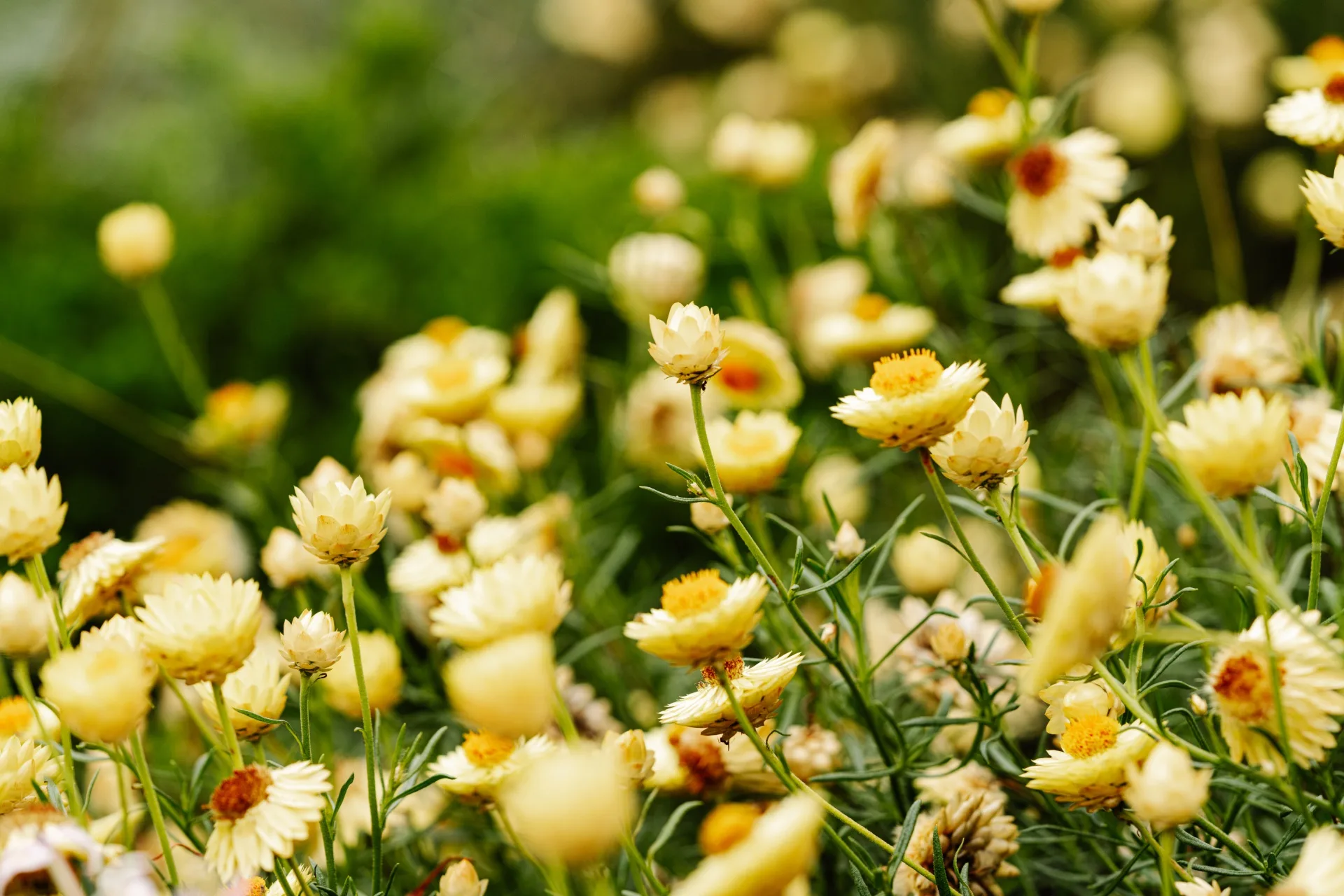

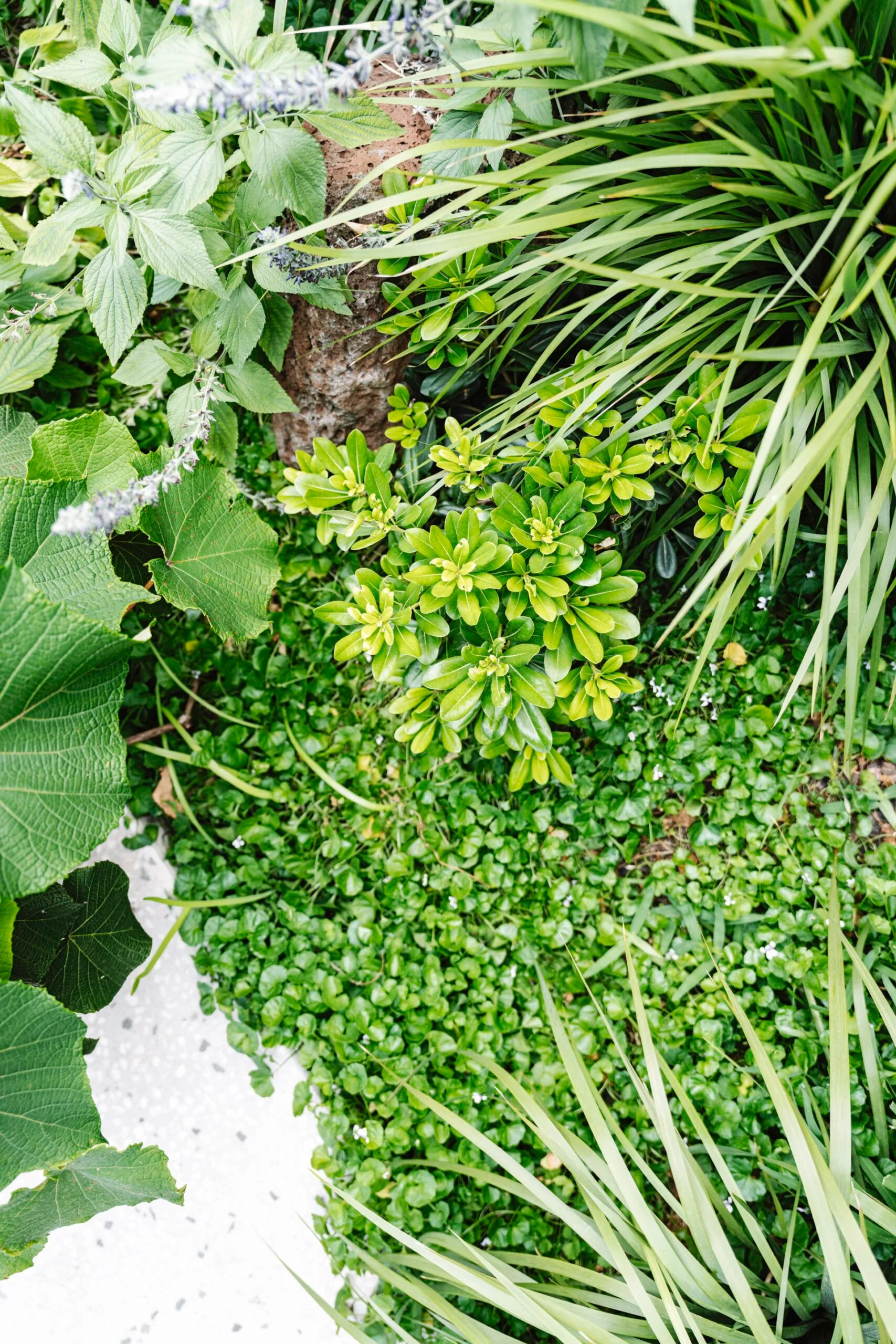
Architecture: Ben Callery Architects, bencallery.com.au, @bencalleryarchitects
Builder: Keenan Built, 0419 366 394
Landscape design: STEM Landscape Architecture & Design, stemlandscape.com, @stem_emmalinebowman
SOURCE BOOK
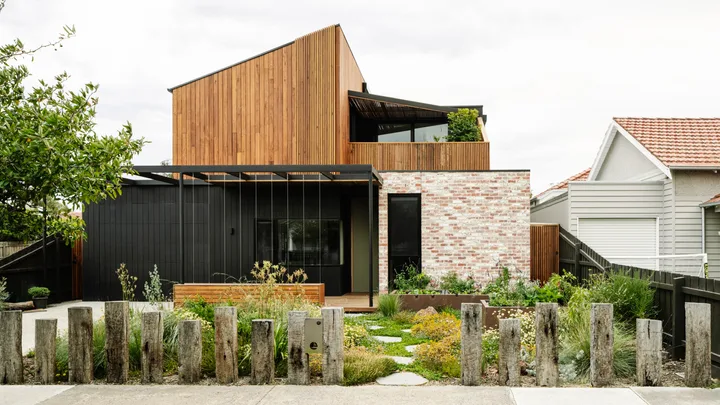 Marnie Hawson
Marnie Hawson
